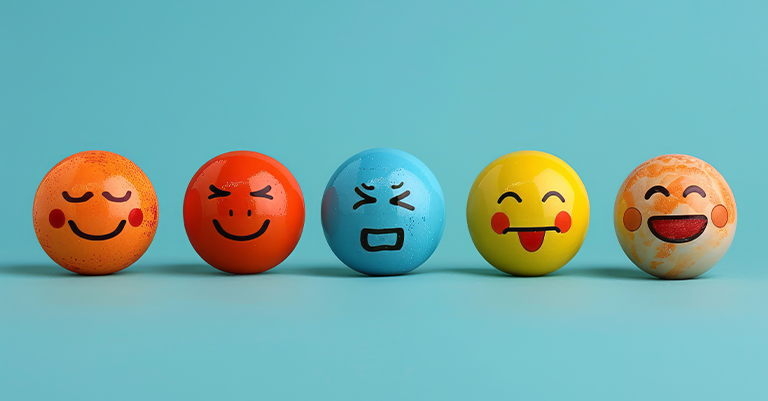Emotional intelligence (EQ) is the ability to understand and manage emotions. It includes recognizing your own feelings and those of others. EQ has five main elements: self-awareness, self-regulation, empathy, social skills, and motivation. These traits bring many emotional intelligence benefits, such as improved communication, better stress management, and stronger relationships. While some people naturally possess high emotional intelligence, anyone can learn and develop these skills. The benefits of emotional intelligence extend to both everyday life and professional settings, helping people build deeper connections and navigate challenges with ease.
Benefits of Emotional Intelligence in Daily Life

Emotional intelligence can greatly improve your daily interactions and experiences. Being in tune with your emotions helps you respond better to others. It also allows you to handle stress, make better choices, and create deeper connections. Understanding your emotions makes life easier to manage. With good EQ, people can better understand the feelings of others and avoid misunderstandings. It helps in staying calm under pressure and finding solutions in tough times. Whether at home, with friends, or with colleagues, EQ plays a key role in how smoothly things go.
How EQ Improves Relationships
EQ helps build strong and lasting relationships. People with high emotional intelligence can better understand others’ emotions. This understanding makes it easier to connect with them. Being a good listener and showing empathy can deepen trust between people. This trust leads to healthier and happier relationships. With EQ, you can communicate clearly, avoiding misinterpretations and conflicts. It helps people express their feelings in a positive way, which is key in maintaining long-term friendships and partnerships. Understanding others makes relationships feel more rewarding and fulfilling.
The Impact of EQ on Mental Health
A high level of EQ can improve your mental well-being. Self-awareness helps you recognize when stress builds up. This awareness allows you to take a step back and breathe. By managing emotions, you can prevent negative thoughts from taking over. Emotional regulation is key to handling life’s ups and downs. It reduces anxiety and boosts resilience. Empathy and understanding towards others can also lead to stronger support systems. When people feel understood and supported, they experience less stress. Good EQ makes it easier to manage emotions, improving overall mental health.
Emotional Intelligence at Work: Why It Matters

EQ is crucial in the workplace. It helps employees and leaders interact better with each other. A team with high emotional intelligence is more likely to work well together. They communicate clearly, understand one another, and are better at solving problems. Leaders with high EQ can inspire and guide their teams effectively. They can navigate through challenges without losing their cool. Emotional intelligence improves job satisfaction and creates a positive work environment. It helps everyone feel heard and valued, leading to a more productive and happier workplace.
EQ and Leadership Skills
Strong leaders often have high levels of emotional intelligence. They understand their own emotions and those of their team members. This understanding helps them make decisions that benefit everyone. Leaders with high EQ know how to motivate and uplift their teams. They recognize when their team members feel overwhelmed and step in with support. This creates a healthier work atmosphere. Emotional intelligence helps leaders build trust within their teams, which is essential for success. Teams feel more confident and engaged when they have an emotionally intelligent leader.
EQ for Team Collaboration
EQ is vital for team collaboration. When team members have high emotional intelligence, they communicate better. This leads to fewer misunderstandings and more effective problem-solving. They can also sense when a colleague needs help and offer support. With EQ, conflicts are less likely to escalate. Instead, people can resolve disagreements calmly. This helps create a positive and productive work environment. A team with high EQ is better at adapting to changes and handling stressful situations together. It makes working together a more pleasant and efficient experience.
How to Improve Your Emotional Intelligence

Improving emotional intelligence takes practice, but anyone can do it. Start by paying attention to your own feelings. Notice how you react in different situations. This will help you become more self-aware. Developing empathy is also important. Try to understand how others might feel in various scenarios. This will help you connect with them better. Building these skills can make a big difference in your interactions. It can help you manage stress, communicate better, and build stronger relationships. With consistent effort, your EQ can grow over time.
Practical Tips to Boost Self-Awareness
Journaling is a great way to increase self-awareness. Write down your thoughts and feelings at the end of each day. This practice helps you notice patterns in your emotions. Mindfulness exercises can also help. Take a few minutes each day to sit quietly and focus on your breathing. It helps you stay present and aware of your emotions. Practice identifying your feelings without judging them. This awareness is the first step to managing your emotions better. Consistent self-reflection helps you understand yourself more deeply, improving your emotional intelligence.
Strengthening Empathy and Social Skills
Empathy helps you connect with others on a deeper level. Practice active listening when talking with someone. Focus on their words without thinking about your response. Notice their body language and tone. This will help you understand their emotions better. Show that you care by responding thoughtfully. Social skills can improve through simple actions like making eye contact and offering genuine compliments. These small actions make others feel valued. Building empathy and social skills takes time, but the effort pays off. It leads to stronger connections and more positive interactions.
Closing Thoughts: The Hidden Value of Emotional Intelligence

Emotional intelligence offers many benefits that can transform how we live and work. It helps us understand our emotions, making it easier to handle stress and overcome challenges. Other benefits of emotional intelligence include improved communication, deeper relationships, and better mental well-being. In the workplace, it creates more effective teamwork and enhances leadership abilities, making everyone feel valued and understood.
Beyond these practical advantages, emotional intelligence also promotes personal growth. It encourages empathy, which can lead to more compassion and a better understanding of others’ experiences. This makes interactions more meaningful and less stressful. By focusing on developing emotional intelligence, you can create a more fulfilling personal and professional life. Embracing the hidden value of EQ can lead to a positive shift in how you approach everyday situations.
It’s not just about managing your own emotions but also about influencing the emotions of those around you in a positive way. Whether you’re aiming for a peaceful home life, a healthier mind, or a more dynamic workplace, emotional intelligence is a key tool. Start practicing these skills today, and you’ll unlock a wealth of emotional intelligence benefits that can enrich every aspect of your life.




